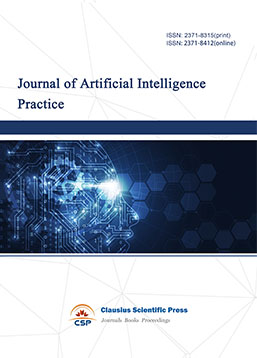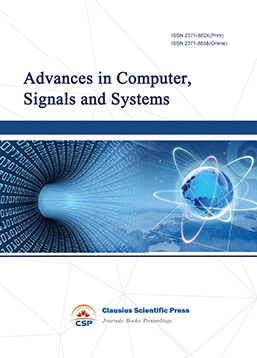Flow Scheduling Strategies for Minimizing Flow Completion Times in Information-agnostic Data Center Networks
DOI: 10.23977/jnca.2016.11003 | Downloads: 43 | Views: 9133
Author(s)
Peiyi Yu 1, Bo Liu 1, Chao Hu 1,2, Changyou Xing 1
Affiliation(s)
1 College of Command Information Systems, PLA University of Science and Technology, China
2 Key Laboratory of Computer Network and Information Integration (Southeast University), Ministry of Education
Corresponding Author
Chao HuABSTRACT
Minimizing the flow completion time (FCT) is widely considered as an important optimization goal in designing data center networks. However, existing schemes either rely on the precondition that the size and deadline of each flow is known in advance, or require modifying the switch hardware, which is hard to implement in practice. In this paper, we present MCPF, a flexible and dynamic flow scheduling strategy to reduce the FCT. This strategy is based on the estimated probabilities of each flow to finish the transmission in a period time, and these flows which have higher completion probabilities are assigned with higher priority. Meanwhile, switches perform flow scheduling according to these priorities. We employ a queueing theory based mathematical model to analyze the average FCT of MCPF, and compare it with other two flow scheduling strategies. We also introduce the challenges and the solutions to implement MCPF in realistic networks. Finally, we evaluate the performance of MCPF in Mininet. The analysis and experimental results show that MCPF could effectively reduce the FCT.
KEYWORDS
completion time; scheduling strategy; data center networks; information agnosticCITE THIS PAPER
Peiyi, Y. , Chao, H. , Bo, L. and Changyou, X. (2016) Flow Scheduling Strategies for Minimizing Flow Completion Times in Information-agnostic Data Center Networks. Journal of Network Computing and Applications (2016) 1: 12-20.
REFERENCES
[1] C. Wilson, H. Ballani, T. Karagiannis, and A. Rowstron, Better never than late: Meeting deadlines in datacenter networks, In Proc. ACM SIGCOMM, 2011.
[2] D. Abts, B. Felderman, A guided tour of data-center networking, Commun. ACM, vol. 55, no. 6, pp. 44–51, June 2012.
[3] M. Alizadeh, A. Greenberg, D. A. Maltz, J. Padhye, P. Patel, B. Prabhakar, et al. Data center TCP (DCTCP), in Proc. ACM SIGCOMM, 2010.
[4] T. Benson, A. Akella, and D. Maltz, Network traffic characteristics of data centers in the wild, In Proc. IMC, 2010.
[5] A. Greenberg, J. R. Hamilton, N. Jain, S. Kandula, C. Kim, P. Lahiri, et al. VL2: A scalable and flexible data center network, In Proc. ACM SIGCOMM, 2009.
[6] W. Bai, L. Chen, K. Chen, D. Han, C, Tian, H. Wang, Information-agnostic flow scheduling for commodity data centers, In Proc. USENIX NSDI 2015.
[7] D. Gross, J. F. Shortle, J. M. Thompson, and C. M. Harris. Fundamentals of Queueing Theory. Wiley-Interscience, 2008.
[8] C. Lu. Queueing Theory. Beijing University of Post and Telecommunication Press, 1993.
[9] N. Handigol, B. Heller, V. Jeyakumar, B. Lantz, and N. McKeown, Reproducible network experiments using container-based emulation, In Proc. ACM CoNEXT, 2012.
[10] C. Raiciu, S. Barre, C. Pluntke, A. Greenhalgh, D. Wischik, and M. Handley, Improving datacenter performance and robustness with multipath tcp, In Proc. ACM SIGCOMM, 2011.
| Downloads: | 1733 |
|---|---|
| Visits: | 181430 |
Sponsors, Associates, and Links
-
Power Systems Computation

-
Internet of Things (IoT) and Engineering Applications

-
Computing, Performance and Communication Systems

-
Journal of Artificial Intelligence Practice

-
Advances in Computer, Signals and Systems

-
Journal of Web Systems and Applications

-
Journal of Electrotechnology, Electrical Engineering and Management

-
Journal of Wireless Sensors and Sensor Networks

-
Journal of Image Processing Theory and Applications

-
Mobile Computing and Networking

-
Vehicle Power and Propulsion

-
Frontiers in Computer Vision and Pattern Recognition

-
Knowledge Discovery and Data Mining Letters

-
Big Data Analysis and Cloud Computing

-
Electrical Insulation and Dielectrics

-
Crypto and Information Security

-
Journal of Neural Information Processing

-
Collaborative and Social Computing

-
International Journal of Network and Communication Technology

-
File and Storage Technologies

-
Frontiers in Genetic and Evolutionary Computation

-
Optical Network Design and Modeling

-
Journal of Virtual Reality and Artificial Intelligence

-
Natural Language Processing and Speech Recognition

-
Journal of High-Voltage

-
Programming Languages and Operating Systems

-
Visual Communications and Image Processing

-
Journal of Systems Analysis and Integration

-
Knowledge Representation and Automated Reasoning

-
Review of Information Display Techniques

-
Data and Knowledge Engineering

-
Journal of Database Systems

-
Journal of Cluster and Grid Computing

-
Cloud and Service-Oriented Computing

-
Journal of Networking, Architecture and Storage

-
Journal of Software Engineering and Metrics

-
Visualization Techniques

-
Journal of Parallel and Distributed Processing

-
Journal of Modeling, Analysis and Simulation

-
Journal of Privacy, Trust and Security

-
Journal of Cognitive Informatics and Cognitive Computing

-
Lecture Notes on Wireless Networks and Communications

-
International Journal of Computer and Communications Security

-
Journal of Multimedia Techniques

-
Automation and Machine Learning

-
Computational Linguistics Letters

-
Journal of Computer Architecture and Design

-
Journal of Ubiquitous and Future Networks


 Download as PDF
Download as PDF